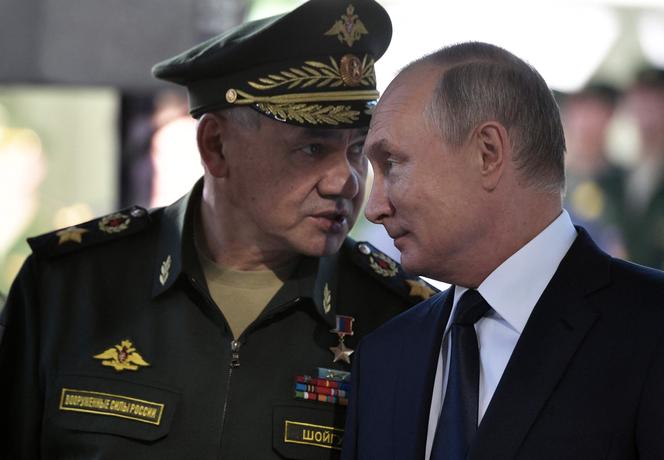


Russian defense minister for the past 12 years, Sergei Shoigu has not survived the turmoil created by two years of large-scale war against Ukraine. A close friend of Vladimir Putin, whom he takes hiking in the Taiga every summer, Shoigu, 68, was relieved of his duties on Sunday, May 12. He will be replaced by the economist Andrei Belousov.
An experienced politician who held government portfolios since 1991, Shoigu's star faded as soon as the failed start of the invasion of Ukraine in 2022. At the time, the Russian army appeared ill-prepared and far less modernized than Shoigu, known more for his talents as a communicator than a reformer, had claimed. The huge corruption scandal affecting his ministry, which erupted at the end of April and reached as far as his deputy, Timur Ivanov, served as the detonator.
For some observers, such as former Kremlin adviser Abbas Gallyamov, the minister was not being dismissed because of the corruption scandal, but the fact that the scandal was revealed suggested the decision to oust Shoigu had already been taken. The extent of theft within the Ministry of Defense had been known for years, accepted at the highest level.
However, Shoigu's proximity to the president earned him a soft landing as security council secretary, a post previously held by Nikolai Patrushev, who has also been dismissed. Another Putin loyalist, Patrushev will be entitled to an honorary appointment in his own right, a reminder of the tightly-knit clan structure at the top of the Russian state; his son Dmitry Patrushev has been promised a post as deputy prime minister in the coming days.
Paradoxically, this reshuffle comes as the Russian army reaps successes on the ground. After holding out against the Ukrainian counteroffensive in the summer of 2023, Moscow's army has made progress in Donbas and can now afford to launch an offensive in the Kharkiv region.
The profile of the new minister – whose appointment has yet to be confirmed by the Federation Council – also came as a surprise. Belousov, 65, is certainly a loyal Putin supporter, but he is above all a specialist in economic issues and has no experience in the military field. A long-time adviser to the Kremlin, since 2020 he was first deputy prime minister in Mikhail Mishustin's government.
His appointment, however, follows a logic of ever-increasing militarization of the Russian economy, to face not only the challenges of the war in Ukraine but also a long confrontation with the West. Moscow has so far succeeded in this transition, thanks in part to Chinese support and the early adaptation of its industrial base. Belousov's mission will be to continue this effort.
You have 45.75% of this article left to read. The rest is for subscribers only.
